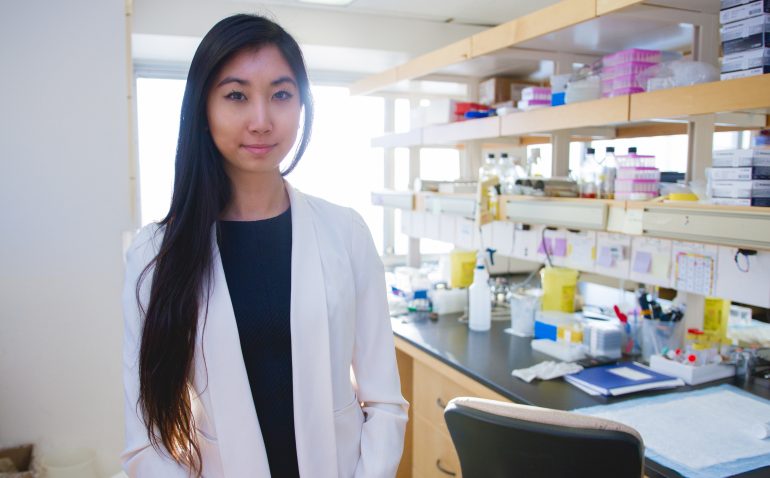Toronto-based Ranomics has announced the close of a $1.6 million CAD ($1.2 million USD) seed round for its genomics platform.
The company declined to reveal the investors that participated in the round. Ranomics conducts proprietary research aimed at resolving variants of unknown significance (VUS); according to founder Cathy Tie, the largest problem in hereditary disease testing is that over 60 percent of all genetic tests are inconclusive. “This is due to newly identified genetic variants in the patient that have no clinical or medical precedence, leading to mis-or-non-diagnosis and compromising patient care,” said Tie.
Ranomics generates and tests these genetic variants in biological systems like human cell lines or disease models. The datasets created by Ranomics are used by clinical labs to classify previously unknown genetic variants, and evaluate a patient’s risk of developing hereditary diseases. In April 2016, Ranomics launched RING-Domain, a database of functional studies of 2,000 mutations of BRCA1, one of the most commonly mutated genes in breast and ovarian cancers. Currently, Ranomics counts Mount Sinai Hospital, the Beijing Genomics Institute, and Veritas Genetics as subscribers of its platform — which Tie said is tapping into a $10 billion industry.
Last year, Tie was among 2015’s Thiel Fellows, and spent time in San Francisco-based biotechnology accelerator Indie Bio, where she received $100,000 in seed funding. “Biotechnology startups face a greater risk and barrier to entry than other types of startups, such as software startups. For example, software developers can launch a website or app product in a living room, but biotechnology entrepreneurs must have access to lab space, equipment, and chemical reagents to even create the first prototype. This makes starting a biotechnology company more risky and difficult,” said Tie. “Indie Bio provided us with lab space and our first funding, which enabled us to validate our technology and create our first prototype. Indie Bio also offered a great network of mentors and investors that helped us continue to grow as a company.”
Ranomics will use the funding for continued research and development, and branch out into hereditary cancer genes with similar biology as BRCA1, such as TP53 and BRCA2. Currently, Ranomics is based in JLABS, a health incubator run by Johnson and Johnson in the MaRS Discovery District. “Ranomics is surrounded by Toronto’s fast-growing startup ecosystem, as well as top talent and resources at local research institutes,” said Tie.
Photo credit Ivan Zhang


